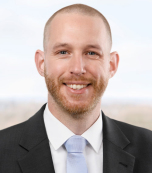Information for Teaching Staff
 Photo: Jakob Studnar
Photo: Jakob Studnar
Are you a teacher or researcher at the FernUniversität and interested in realizing your topics within the framework of continuing education? Follow the link to will find contact persons, initial information and some key questions to help you flesh out your idea.
Just talk to us, even if you only have the bare bones of an idea. You do not need to have a fully fleshed out concept.
Contacts
 Photo: Hardy Welsch
Photo: Hardy Welsch
Constanze Schick, Managing Director of the university’s continuing education institution, FeUW
Email: info-weiterbildung
Phone: +49 (0)2331 987-2527
 Photo: Hardy Welsch
Photo: Hardy Welsch
Florian Horstmann, Personal Assistant to the Vice-President for Continuing Education, Knowledge Transfer and International Affairs
Email: florian.horstmann
Phone: +49 (0)2331 987-2484
Sometimes it helps to talk to colleagues in your field who are experienced in continuing education. Chances are, you will already know such teachers in your faculty. Of course, we are also happy to put you in contact with colleagues who can help you, because synergies and analogies are not always immediately apparent, especially across faculties.
In addition, the Vice-President for Continuing Education, Knowledge Transfer and International Affairs invites all those active in and interested in continuing education to a Community of Practice twice a year.
-
For many lecturers in continuing education, freedom of content is a decisive criterion in their decision to set up their own study program. It is not always possible for them to realize all their individual ideas and interests within the framework of the existing undergraduate bachelor’s and master’s degree programs. This may be because their own teaching load is already too high, or because the topics simply do not fit in the finely balanced curriculum. It is especially difficult to find a niche for special topics.
Continuing education is carried out as a separately remunerated part-time position, so that your teaching load continues to benefit your teaching without restriction. The flexible structures in continuing education allow you to tailor your subject to your needs: from smaller certificate courses with 5 credit points up to classic master’s degree courses with 120 ECTS.
-
Continuing education courses differ from standard bachelor’s and master's courses in terms of their target group, format, and content.
They are targeted especially at people with professional experience who would like to deepen or expand their practical knowledge. At least one year of professional experience is even a mandatory additional admission criterion for continuing education master’s programs.
Depending on the target group and scope, continuing education courses can be offered as smaller certificates or fully-fledged master’s degrees. Continuing education certificates at the FernUniversität generally comprise 5 to 30 credit points, master’s degree programs 60 to 120 credit points. In practice, a “step-by-step model” has proven successful, in which students can start with smaller certificates and gradually work towards a greater goal. Here you will find a practical example.
Unfortunately, the NRW Higher Education Act does not provide for continuing education bachelor’s degree courses.
Undergraduate bachelor’s and master’s degrees take a more generalist approach to a subject and familiarize students with the many facets within the subject. Continuing education certificates, on the other hand, are typically interdisciplinary in both content and admission requirements. They also provide opportunities for individuals with prior professional training to specialize in a field relevant to their expertise.
The defining characteristic of continuing education courses is their strong professional relevance. Continuing education builds on existing professional experience, incorporates this into the design of the curriculum and teaching, and imparts job-related skills and knowledge.
However, the academic rigor of these courses is no less demanding. The standards and requirements of continuing education programs are just as academically sound as other university degree programs.
-
The FernUniversität does its best to relieve you of as much organizational and administrative work as possible. In 2019, the FernUniversität founded the wholly owned subsidiary “FernUniversität in Hagen – Institut für wissenschaftliche Weiterbildung GmbH” (FeUW) specifically for this purpose.
Its services include advice and support with media didactic concepts, financial planning, market research, contract management (with you and, if necessary, other instructors or authors), technical implementation, student advice and support, the administration of data and examinations, the implementation and preparation of quality assurance, and much more.
These and other support services enable you to concentrate as much as possible on the academic aspects, e.g., developing the curriculum and content, selecting additional lecturers and authors, teaching, examination assessment, professional exchange in the community, and the ongoing development and revision of the offering.
-
You are welcome to contact us at any stage of planning, regardless of whether you already have a final concept in mind (or already drawn up) or whether you just have a vague idea. If you would like to refine your idea before talking with us, the following key questions can serve as an initial guide:
- What skills do I want to teach and who needs them?
- What are the time constraints, financial situation, and didactic needs of my target group?
- What is the scope of these skills and what kind of certification do participants need for their career?
- Who will do the teaching? Can I do this alone, or will I need help from colleagues inside/outside the university?
- Are there external stakeholders in the field that should be involved, such as professional associations?
- Are there links to existing undergraduate teaching programs or other continuing education programs at the FernUniversität?
-
According to the NRW Higher Education Act, continuing education must be self-financing and is therefore associated with higher costs for participants than undergraduate studies. We will be happy to assist you with the exact calculation. Some of the most important questions and metrics include:
Personnel costs: Since continuing education takes place on a part-time basis, this includes the costs for your commitment, but also for other lecturers, examiners, authors, etc.
The target group’s willingness and ability to pay: It must be possible to pass on all of the costs to the participants.
Initial investment: Will it be necessary to create a lot of traditional teaching materials at the beginning, or can the project – for the time being – also start in a more flexible teaching setting?
-
In principle, anyone can offer continuing education, so you don’t necessarily have to hold a professorship at the FernUniversität. For quality assurance reasons, a professorial director is appointed for each continuing education program. If this is not possible in your case, we will try to find a solution on an ad hoc basis.

